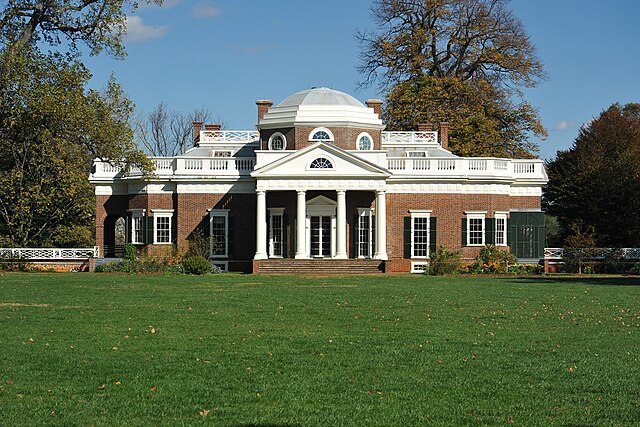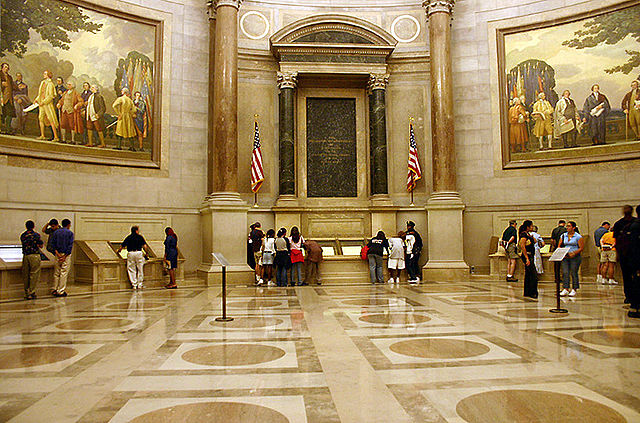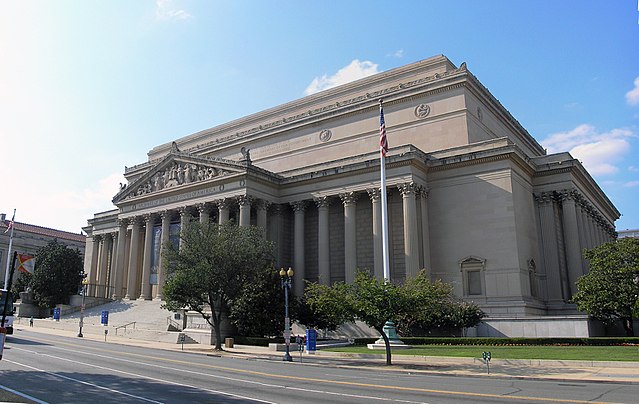Presidential library system
In the United States, the presidential library system is a nationwide network of 16 libraries administered by the Office of Presidential Libraries, which is part of the National Archives and Records Administration (NARA). These are repositories for preserving and making available the papers, records, collections and other historical materials of every president of the United States since Herbert Hoover, the 31st president from 1929–1933. In addition to the library services, museum exhibitions concerning the presidency are displayed.
Image: The Fred W. Smith National Library for the Study of George Washington
Image: Old House, Quincy, Massachusetts
Image: Monticello 2010 10 29
Image: Rotunda U Va from the south east
National Archives and Records Administration
The National Archives and Records Administration (NARA) is an independent agency of the United States government within the executive branch, charged with the preservation and documentation of government and historical records. It is also tasked with increasing public access to those documents that make up the National Archives. NARA is officially responsible for maintaining and publishing the legally authentic and authoritative copies of acts of Congress, presidential directives, and federal regulations. NARA also transmits votes of the Electoral College to Congress. It also examines Electoral College and constitutional amendment ratification documents for prima facie legal sufficiency and an authenticating signature.
The National Archives' Rotunda for the Charters of Freedom where, in-between two Barry Faulkner murals, the original United States Declaration of Independence, United States Constitution, and other American founding documents are publicly exhibited.
1930 Census Record from Naval Station Great Lakes, Lake County, Illinois.
The National Archives Building from Constitution Avenue







